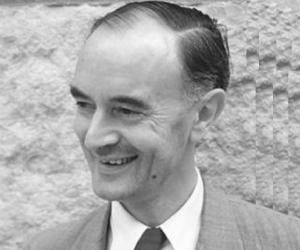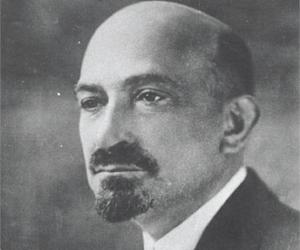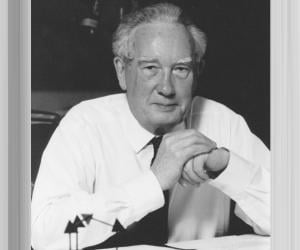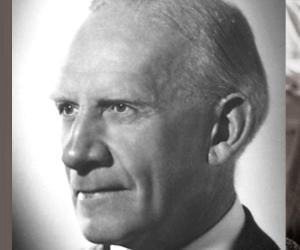Born in Russia, biochemist Chaim Weizmann was a World Zionist Organization leader and later also became the first president of Israel. He had a major role in the Balfour Declaration. Remembered for his research on industrial fermentation, gasoline, and rubber, he also helped establish the Weizmann Institute.
Derek Barton was a British organic chemist best remembered for winning the 1969 Nobel Prize in Chemistry. He won the prize alongside Odd Hassel for their contributions to the development of a concept called conformation and its applications in chemistry. Derek Barton also won several other prestigious awards, including the Corday-Morgan Prize, Davy Medal, Ernest Guenther Award, and Copley Medal.
Robert Robinson was a British organic chemist best remembered for winning the 1947 Nobel Prize for Chemistry for his research on anthocyanins and alkaloids. Robinson is credited with inventing the symbol for benzene; discovering the molecular structures of penicillin and morphine; founding the journal Tetrahedron. Robert Robinson was also the recipient of the Davy Medal, Royal Medal, and Copley Medal.

Christopher Kelk Ingold was a British chemist. He is best remembered for his pioneering work on the electronic structure and reaction mechanisms of organic compounds, which was responsible for the institution of concepts like electrophile, inductive, nucleophile, and resonance effects into mainstream chemistry. Christopher Kelk Ingold is counted among the pioneers of physical organic chemistry.

Jonathan Clayden is a British chemist and educator. He is best known for his association with the University of Bristol, where he is currently working as a professor of organic chemistry. From 2005 to 2011, Jonathan Clayden served as the editor-in-chief of the Beilstein Journal of Organic Chemistry.




